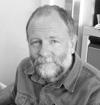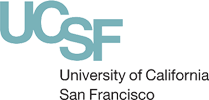About Us
The International Consortium for Electroencephalography Training of Anesthesia Practitioners (ICE-TAP) was created to provide teaching modules for anesthesiologists concerning EEG and its application in the OR setting. Much is to be improved at this point but we hope this website will become a hub for exchange of ideas concerning EEG and brain monitoring for people interested in such topics.
Steering Committee
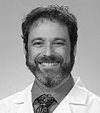
Michael Avidan is the Dr. Seymour and Rose T. Brown Professor of Anesthesiology at Washington University School of Medicine, St. Louis, Missouri. He is the Division Chief of Cardiothoracic Anesthesiology and is the Director of the Institute of Quality Improvement, Research and Informatics (INQUIRI). His current research interests include: intraoperative awareness, postoperative cognitive alteration, brain monitoring, and postoperative intermediate term outcomes.
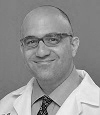
George A. Mashour is an anesthesiologist, neuroscientist, and Director of the Center for Consciousness Science at the University of Michigan. He is also an active faculty member in the Neuroscience Graduate Program and holds adjunct faculty appointments in psychology and philosophy. George’s primary research interests relate to consciousness, network-level mechanisms of anesthetic-induced unconsciousness, sleep-anesthesia interfaces, and neurologic outcomes of surgery.
Jamie Sleigh is Professor of Anesthesiology and Intensive Care at the Waikato Clinical School, of the University of Auckland, Hamilton, New Zealand. He grew up in Zimbabwe, and specialised in anaesthesia in the United Kingdom, before moving to New Zealand in 1988. His current research interests include: EEG and anaesthesia, the modelling of brain dynamics in anaesthesia, sleep, and seizures; and the molecular determinants of postoperative pain.
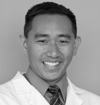
Ben Julian A. Palanca, M.D., Ph.D., M.Sc. is an Assistant Professor Anesthesiology at Washington University School of Medicine. His long-term goal is the characterization of diagnostic and prognostic neuroimaging markers that may be employed for improving outcomes in perioperative and procedural medicine. His work has been funded by the National Institutes of Health, the Foundation for Anesthesia Education and Research, the McDonnell Foundation for Neuroscience, and the Barnes-Jewish Hospital Foundation/Washington University Institute of Clinical and Translational Sciences.
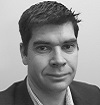
Adam Hastings is a Staff Specialist in Anaesthesia at Westmead Hospital in Sydney, Australia. He specialises in neuroanaesthesia, intraoperative neuromonitoring, cardiothoracic anaesthesia and perfusion. He is a Senior Clinical Lecturer and the Course Coordinator of the Masters of Medicine (Clinical Neurophysiology) program at the University of Sydney.
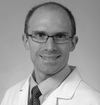
TJ Graetz is an Assistant Professor of Anesthesiology and Surgery at Washington University School of Medicine, St. Louis, Missouri. He is also the Associate Program Director for the Critical Care Fellowship Program.
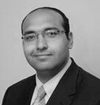
John F. Bebawy is an Associate Professor of Anesthesiology & Neurological Surgery at Northwestern University Feinberg School of Medicine, where he is also an Associate Director of the Neurosurgical Anesthesiology Fellowship Program. His current research interests include intraoperative neuromonitoring, cerebral hemodynamics, and neuropharmacology.

Laura Hemmer is an Associate Professor of Anesthesiology and Neurological Surgery at Northwestern University Feinberg School of Medicine and the Associate Director of Neurosurgical Anesthesia. As a neuroanesthesiologist, she is particularly interested in neurophysiological monitoring for intracranial neurovascular surgeries and perioperative patient safety. She has given multiple lectures and workshops and participated in panels at medical society meetings to further anesthesiologists' knowledge of neurophysiological monitoring as well as published on the topic. She also currently serves on the American Society of Neurophysiological Monitoring Board of Directors (2015-2019 term).

Matthias Kreuzer is a research fellow at the Department of Anesthesiology at the Klinikum rechts der Isar of the Technische Universität München (Germany). He holds a Master’s degree in Electrical Engineering and one in Biomedical Engineering. His main research interests are (nonlinear) EEG and field potential analysis, anesthetic effects on cerebral information processing, and evaluation of the performance of depth of anesthesia monitors.

Denis Jordan is a research fellow at the Department of Anesthesiology, Klinikum rechts der Isar, Technische Universität München (Germany). He grew up in Berne (Switzerland) where he graduated in Mathematics and Theoretical Physics before he went to Munich and received a PhD. His primary research interests include analysis methods of signals generated by nonlinear dynamics, their application and evaluation in EEG, EP and fMRI data, and neural mechanisms of consciousness and unconsciousness.

UnCheol Lee is a Research Investigator in the Department of Anesthesiology at the University of Michigan Medical School. He earned his Ph.D. in nonlinear dynamics & complex systems through the Department of Physics, POSTECH, Korea. Dr. Lee was subsequently a postdoctoral fellow at the Max Planck Institute for the Physics of Complex Systems in Dresden, Germany. His main research interests include complex brain networks, functional connectivity, dynamic state transitions during general anesthesia, and linking anesthesiology to complexity science.
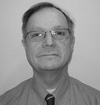
Eric J. Heyer is Professor of Clinical Anesthesiology and Clinical Neurology and Director of the division of Neurosurgical Anesthesiology at the Columbia University Medical Center in New York. He obtained his MD and PhD at The Albert Einstein College of Medicine in Bronx New York. He completed both his Neurology and Anesthesia residencies at Columbia University Medical Center in New York. He is a Diplomate of both The American Board of Psychiatry and Neurology (Neurology) and American Board of Anesthesilogy. His research interests include intraoperative neuromonitoring and determining postoperative cognitive dysfunction associated with treatments of carotid artery stenosis.
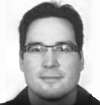
John Gaudet Van Driest is a clinical fellow in the Department of Anesthesiology at the Columbia University Medical Center in New York. He grew up in Geneva Switzerland and obtained his MD at the University of Geneva where completed his anesthesiology residency. He is a Diplomate of the European Board of Anesthesiology. His research interests include intraoperative neuromonitoring and postoperative neurological complications.
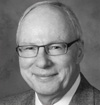
Adrian W. Gelb is a Professor in the Department of Anesthesia & Perioperative Care at the University of California San Francisco. Prior to moving to UCSF he was the Professor & Chair of Anesthesia at the University of Western Ontario, London Canada. His research and clinical interests include clinical neuroanesthesia, monitoring of cerebral function, and perioperative stroke.
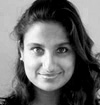
Divya Chander is an Instructor in Anesthesiology and Research Fellow in the Department of Bioengineering at Stanford University. Her primary clinical interests are in neuroanesthesia, and the use of intraoperative brain monitoring (especially the raw EEG) to safely manage anesthetics. Her research interests pertain to the investigation of neural loci that contribute to the transitions in levels of consciousness and arousal states. Both sleep/wake and anesthesia-induced unconsciousness serve as model systems; optogenetics is used to selectively drive or silence selected populations of neurons to determine their contributions to the network. She also maintains an active connection to space life sciences and the evolution of manned spaceflight. When not researching, her primary loves are dancing and building her telescope.

Heiko A. Kaiser is an Instructor in Cardiothoracic Anesthesia at Washington University School of Medicine, St.Louis, Missouri. He did his training in general and cardiothoracic anesthesia in Berne (Switzerland) and has been a research fellow at Washington University in St.Louis in 2005. He completed medical school and his doctoral thesis at the Ruprecht-Karls University in Heidelberg (Germany) and is a Diplomate of the European Society of Anaesthesiologists. His main research interests are brain monitoring with EEG, neural correlates of anesthetic-induced loss of consciousness and postoperative delirium.

Max Kelz is an Assistant Professor of Anesthesiology & Critical Care at the University of Pennsylvania, Perelman School of Medicine. He also holds appointments in the Center for Sleep and Circadian Neurobiology and in the Mahoney Institute for Neurological Sciences at Penn. Max’s primary research interests relate to the neural circuits upon which general anesthetics act to induce unconsciousness and also to the circuits whose function must be restored to permit anesthetic emergence. He has focused his studies in mammals and invertebrates and is keenly interested in the overlap between sleep and anesthesia.
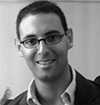
Francisco A. Lobo is an anesthesiologist at the Department of Anesthesiology, Hospital Geral de Santo António, Porto (Portugal) and is a Board member of the EuroSIVA (European Society for Intravenous Anaesthesia). He was a Visiting Professor and Instructor in Anesthesiology at the Washington University School of Medicine, St. Louis, Missouri, in 2005. His primary interest is clinical neuroanesthesia, in particular anesthesia for awake neurosurgery, pharmacology of intravenous anesthesia, EEG, and depth of anesthesia monitoring.

Paul Garcia is a Staff Anesthesiologist at the Atlanta VA Medical Center and Assistant Professor at the Department of Anesthesiology, Emory University School of Medicine, Atlanta, Georgia. He has worked very closely with David Rye, MD, PhD and other researchers affiliated with Emory's sleep center to probe the overlap between sleep and anesthesia especially in the setting of idiopathic hypersomnia. His primary interests are in neuroanesthesia and geriatric anesthesia, in particular aneurysm surgery, spine surgery, EEG and recovery from general anesthesia.
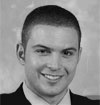
Phillip Vlisides is a neuroanesthesiologist at the University of Michigan where he also serves as clinical research lead in the Division of Perioperative Neuroscience. Prior to this appointment, Dr. Vlisides completed a T32 fellowship in perioperative neuroscience research. Currently, his research interests relate to brain injury after surgery – perioperative stroke, the impact of cerebrovascular disease on perioperative outcomes, and postoperative delirium.
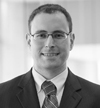
Dr. Berger is at Duke where he is an Assistant Professor of Neuroanesthesiology and the Assistant Director for the Neurologic Outcomes Research Group. Dr. Berger's research focuses on identifying biomarkers for postoperative cognitive dysfunction and delirium; understanding potential links between these disorders, anesthesia and surgery, and Alzheimer's disease pathogenesis; and developing interventions to promote postoperative cognitive resilience in older adults.
Trainees
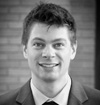
Mark Willingham, MD is a resident at Barnes Jewish Hospital in the Anesthesiology Scholars Track. He graduated from Saint Louis University School of Medicine and has worked on projects evaluating associations between electroencephalographic motifs and mortality.

Andrew (Sungkook) Park, MD is an anesthesiology resident at the University of California, Los Angeles. He graduated from Washington University School of Medicine, and is expected to finish his residency in 2016. His research interests include intraoperative neuro-monitoring, and perioperative management of pulmonary hypertension.

Liz Whitlock, MD is in the Research Scholars' track of the Anesthesia & Perioperative Care residency at University of California, San Francisco. Her research focuses on using large datasets to investigate patient-centered outcomes and rare perioperative complications.
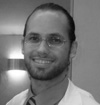
Paul McNair is a medical student at Washington University in St. Louis. He worked with Dr. Avidan during a summer on various projects concerning intra-operative awareness and EEG. He is expected to graduate in 2014 and anticipates pursuing a career in Anesthesiology.
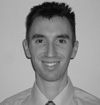
Bradley is a medical student at Washington University in St. Louis who is also pursuing a Masters of Science in Clinical Investigation. His research projects have focused on intraoperative electroencephalography, postoperative recovery, and postoperative delirium. He expects to graduate in 2015 and pursue a career in anesthesiology.

Amrita Aranake is a medical student at Washington University in St. Louis who worked with Dr. Avidan on several projects while earning a Masters of Science in Clinical Investigation. She is planning to pursue a career in Anesthesiology after graduating in 2013.

Krisztina Escallier is a medical student at Washington University in St. Louis. She will graduate in 2015 and plans to pursue a career in anesthesiology. Her research interests include intraoperative brain monitoring, postoperative delirium, and functional outcomes after surgery and critical illness.

Daisy Zhou is a medical student at Washington University in St. Louis. Over the summer of 2013, she worked on a project investigating EEG monitoring in different age groups, and participated in another project concerning the reconstitution of consciousness and cognition after anesthesia. She expects to graduate in 2016.

